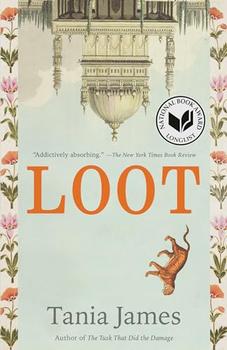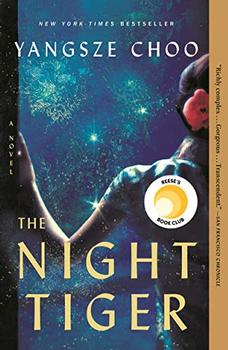Summary | Excerpt | Reading Guide | Reviews | Beyond the book | Read-Alikes | Genres & Themes | Author Bio

A motley array of sailors and stowaways, coolies and convicts embark on a voyage across the Indian Ocean in the midst of the Opium Wars between Britain and China.
At the heart of this vibrant saga is a vast ship, the Ibis. Its destiny is a tumultuous voyage across the Indian Ocean; its purpose, to fight China’s vicious nineteenth-century Opium Wars. As for the crew, they are a motley array of sailors and stowaways, coolies and convicts.
In a time of colonial upheaval, fate has thrown together a diverse cast of Indians and Westerners, from a bankrupt raja to a widowed tribeswoman, from a mulatto American freedman to a freespirited French orphan. As their old family ties are washed away, they, like their historical counterparts, come to view themselves as jahaj-bhais, or ship-brothers. An unlikely dynasty is born, which will span continents, races, and generations.
The vast sweep of this historical adventure spans the lush poppy fields of the Ganges, the rolling high seas, the exotic backstreets of Canton. But it is the panorama of characters, whose diaspora encapsulates the vexed colonial history of the East itself, that makes Sea of Poppies so breathtakingly alive—a masterpiece from one of the world’s finest novelists.
One
The vision of a tall-masted ship, at sail on the ocean, came to Deeti on an otherwise ordinary day, but she knew instantly that the apparition was a sign of destiny, for she had never seen such a vessel before, not even in a dream: how could she have, living as she did in northern Bihar, four hundred miles from the coast? Her village was so far inland that the sea seemed as distant as the netherworld: it was the chasm of darkness where the holy Ganga disappeared into the Kala-Pani, 'the Black Water'.
It happened at the end of winter, in a year when the poppies were strangely slow to shed their petals: for mile after mile, from Benares onwards, the Ganga seemed to be flowing between twin glaciers, both its banks being blanketed by thick drifts of white-petalled flowers. It was as if the snows of the high Himalayas had descended on the plains to await the arrival of Holi and its springtime profusion of colour.
The village in which Deeti lived was on the outskirts of the town of ...
As the language departs from the concrete vocabulary of vessels and their parts, meaning breaks down, but the speakers forge ahead into delightful misunderstandings with unwittingly bawdy undertones. There is a glossary of sorts at the back, but after a few exchanges, you get the gist – which is just about what the characters themselves get as they attempt to bridge linguistic impasses. Struggling to decode the strange patois, then slipping into its lilts and rhythms, illuminates how malleable language is, how much we mold and shape it to our own contexts and purposes, and yet so often view it as a rigid structure not to be tampered with. The pidgin tongue isn't always easy reading, but it's certainly fun. As Amitav Ghosh remarks in an interview with New York Magazine, "The idea that language is a warm bath into which you slip in a comfortable way, to me it's a very deceptive idea."..continued
Full Review
(612 words)
This review is available to non-members for a limited time. For full access,
become a member today.
(Reviewed by Lucia Silva).
The Ghazipur Opium Factory
For centuries, India was the largest exporter of opium,
accounting for 17-20% of Indian revenues. The export of opium to China began in
the 1780's at the urging of the first governor general of British India, Warren
Hastings, in an attempt to balance trade with China. At the time, China exported
enormous amounts of goods including tea, but imported little from Europe. At first,
there wasn't much demand for the drug, but over the next decade demand increased
exponentially. Indian farmers were effectively forced to replace their crops
with opium poppies, and then sell the resulting harvest back to the British East India Company for a pittance.

This "beyond the book" feature is available to non-members for a limited time. Join today for full access.

If you liked Sea of Poppies, try these:

by Tania James
Published 2024
A spellbinding historical novel set in the eighteenth century: a hero's quest, a love story, the story of a young artist coming of age, and an exuberant heist adventure that traces the bloody legacy of colonialism across two continents and fifty years. A wildly inventive, irresistible feat of storytelling from a writer at the height of her powers.

by Yangsze Choo
Published 2020
A sweeping historical novel about a dance-hall girl and an orphan boy whose fates entangle over an old Chinese superstition about men who turn into tigers, set in 1930s Malaysia.




Great literature cannot grow from a neglected or impoverished soil...
Click Here to find out who said this, as well as discovering other famous literary quotes!